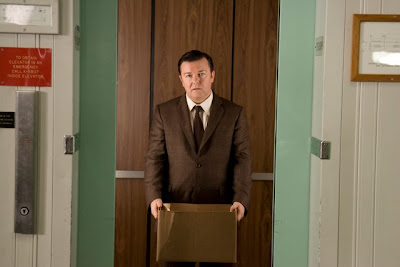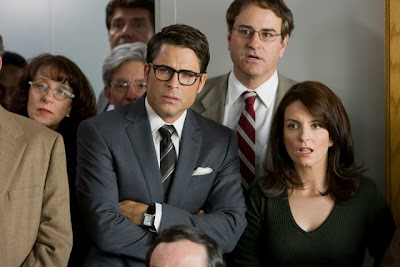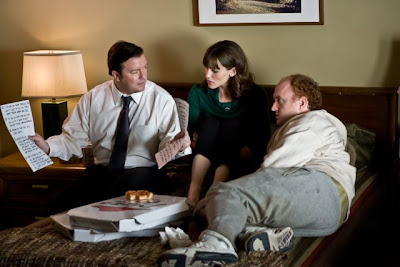Regardless of our age and especially for writers, reading is extremely fundamental. Yet, the most important thing we can do is continually feed our brain with as many new ideas, challenging concepts, or unpredictable puzzles as possible from whatever stimuli it takes to get those creative juices flowing.
While I find inspiration everywhere, there's one source that lead to a whole ocean of innovation. And without owning a single DVD or being able to tell you exactly which episodes comprised any given season, it's Rod Serling's original postmodern, rule-breaking, subversive opus The Twilight Zone, which has always augmented my writer's imagination.
In my case, the combination of both literature and The Twilight Zone created a brand new figurative neural pathway for thought processes by taking my mind in places I wouldn't have have ventured with book fuel alone. Though, the best I did with my experience in The Zone was garnering a short fiction award and a few hundred bucks for a dramatic yarn I'd spun in a collegiate contest that left science fiction and the show's “gimmick” terrain in the dust.
However, screenwriter Matthew Robinson's weekend of Rod Serling's series and the books of Harlan Ellison inspired him to ask what life would be like if the ability to lie was possessed by one single human being.
And with that single idea, Robinson was fueled with one hell of a premise for a Hollywood screenplay. Additionally it netted him something vastly superior to any collegiate writing competition when being in The Zone opened up a collaboration on both the script and filmmaking process with one of this generation's most hilarious individuals, Mr. Ricky Gervais.
Just like the offbeat charm exuded in his previous starring role in David Koepp's woefully underrated Ghost Town as well as his self-deprecating, never-say-die until he gets camera day-player in HBO's Extras, The Invention of Lying finds him as portraying another “lovable loser.”
Yet unlike Bart Simpson, this underachiever is “not proud of it,” longing to write a script that will thrill others at his dull job, where he sits cranking out historical teleplays for boss Jeffrey Tambor. Yet without lies or fiction, he's about halfway out the door because Gervais' Mark Bellison was saddled with the assignment of the fourteenth century wherein the big topic of "Black Plague” equals creative death and an audience of individuals changing channels faster than plague victims dropped like flies.
When “The Invention of the Fork,” fails to impress his boss, Rob Lowe's alpha-screenwriter coworker rival who represents everything Gervais doesn't have and wants, even his secretary (Tina Fey) lets Bellison have it with both barrels. Unfortunately, we discover this is just a typical day for our unlikely hero as the characters in WB's unique production adhere to the adage the honesty is the best policy by sharing exactly what they're thinking at any and every given moment.
With this in mind, you do need to overlook the fact that the script is missing a brief exchange to explain why the absence of lies has gone in tandem with a chatty population filled with rude and blunt responses. Even though it's obvious that he characters lack a politeness and common sense based filter, we're clueless as to why they will nonetheless share horrible opinions without any prompting whatsoever as though they were walking/talking jealous online comment board posts, angry Twitter messages or catty cell phone texts.
Yet thankfully and especially in the case of our introduction to Jennifer Garner's character Anna as the woman of Mark Bellison's dreams, the writers use ideal judgment in ensuring that this tactic is so funny that we overlook the unaccounted for problem wherein social practice and logic would dictate that characters would remain silent more than they do so as not to alienate everyone in their wake with Curb Your Enthusiasm style misanthropy.
Yet despite the flaw, it's a brilliantly subversive work as Gervais and Robinson are able to work in some terrific allegorical subtext that address religion, family, and other issues while limited by-- as Garner revealed in the production notes-- the fact that this particular film is set in a world wherein “subtext doesn't exist.”
For, just as parents often tell children that “white lies” are meant to soothe or prevent harm to other people's feelings and therefore not just acceptable but in several cases encouraged, Mark's first brushes with the nameless concept of saying “something that wasn't” include an untruth out of necessity to keep a roof over his head and a beautiful white lie told out of love.
With his dying mother's doctor Jason Bateman so eager to leave the room for fajita night that he doesn't stay with his patient, Mark can't bear to listen to his mother's fears about the lack of an afterlife so he tells her what he knows she'd truly want to hear, sharing tales of heaven where nobody lives in an elderly home but mansions instead.
However, his stories of “the man in the sky” are taken literally as gospel and he begins to attract so much media attention that-- with the absence of a tablet-- he makes commandment style ones out of pizza boxes as the lies keep multiplying for the failed screenwriter turned "false prophet." Unfortunately while he gets more respect from his community, his success doesn't come in the way he'd originally wished as Mark discovers that he can't abandon his basic human decency in manipulating the beautiful Anna whom he desperately wants to love him back.
While critically there were arguments that the love story angle overtook the satirical feel of the film's daring Religulous-like poke at religion, I'd have to say that in stark contrast, the love story angle was Mark's “quest” from the beginning. In fact, the desire for Anna was much more important to Mark than his job or money so with the heart in its right place, thankfully the movie doesn't evolve into a one-joke Bruce Almighty, Yes, Man or Click style half-baked concept comedy.
Moreover, much more than being simply dismissed as a rom-com opposite take of Jim Carrey's Liar Liar, it's fitting from a writer's perspective-- and especially when the characters are embodied by Garner and Gervais-- that we would return to that in the end for the final reel.
Despite a slight frustrating sound balance problem on the Blu-ray, which transferred the dialogue at whisper level and the ambient noise at a much higher one, it's a crisp and dynamic Blu-ray that boasts a digital copy of the film that you can take with you on the raod.
A great companion piece to Ghost Town, in The Invention of Lying we realize once again that despite his infectious and unpredictable hyena like laugh on display once more in the outtakes and refusal to take himself seriously, there's a real sense of humanistic comedic integrity about Gervais.
In fact it's this quality that makes you believe you're seeing a silent comedy star who one day realized he could talk just like this character did in a nice play on The Twilight Zone by inventing the concept of a lie. Yet, as everyone knows, comedy never lies and the truth about Gervais is that he's just ridiculously funny.
Text ©2010, Film Intuition, LLC; All Rights Reserved. http://www.filmintuition.com
Unauthorized Reproduction or Publication Elsewhere is Strictly Prohibited and in violation of the Digital Millennium Copyright Act.
FTC Disclosure: Per standard professional practice, I received a review copy of this title in order to evaluate it for my readers, which had no impact whatsoever on whether or not it received a favorable or unfavorable critique.





















